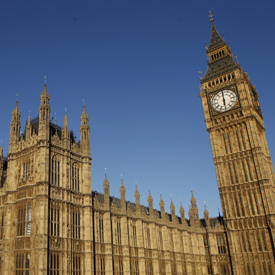Government wins three welfare votes so far
The government has overturned three of the seven amendments to its welfare bill proposed by the House of Lords last week. Further votes, including one on a benefits cap, are due later today.

MPs on Wednesday reversed changes made by peers, to the Employment Support Allowance (ESA).
The House of Commons supported the government by 324 votes to 265 to stop young disabled people who had never worked from claiming “contributory” ESA.
MPs also backed plans to means test those recovering from illness or injury after one year rather than the two that peers had voted for.
The third vote on Wednesday relates to cancer patients: Peers had voted for cancer patients to be exempt from means testing, but MPs overturned their decision.
Employment Minister Chris Grayling told the Commons that the welfare bill was introducing the right changes.
“I do accept anxiety around cancer but I should also say the approach we are taking to all of our reforms, in particular those in relation to sickness and disability, is we should not write off automatically any individual affected by a particular condition,” he said.
“Applying a one size fits all to any one condition we believe is the wrong thing to do.”
Shadow welfare minister Stephen Timms said the changes proposed by the government would hit 100,000 people “who had all their lives done the right thing”.
He said it was wrong to introduce a “literally indefensible” benefit cut-off at 12 months, which was “not enough” time to expect cancer sufferers to return to work.
“After 12 months many people are still experiencing the debilitating physical and psychological effects of cancer and from its treatment,” he said.
“This is a dreadful proposal. By removing contributory benefit long before most people will have a chance to get back to work, it removes an absolutely key plank of the contributory system – people having the paths to be able to depend on support in event of a disaster.”
Debate on household benefit cap
A debate on whether to remove child benefits from the £26,000 annual cap on a household’s benefits is also taking place today. Led by a group of Bishops, peers voted to remove child benefit from the proposed cap on a household’s benefits.
Shadow work and pensions secretary Liam Byrne said that Labour would push for its own amendment to create a cap on a regionalised basis.
He suggested that the level of the cap be determined by an “independent commission” and added: “We propose taking the politics out of this.”
But Ian Duncan Smith, minister for work and pensions, said: “What I cannot understand, if you have been believing in this for a while, why at no stage have you advanced this amendment which you believe, apparently so passionately, now needs to be advanced. Why not in the Lords, why not here?
“There is no answer – you are trying to indicate one thing and run away with the other.”
Labour former welfare reform minister Frank Field said the cap was “unbelievably crude”, adding that this measure, along with the introduction of universal credit, would be “two God almighty catastrophes” when implemented.
He said ministers were targeting the weak to save on the benefits bill and urged them to take “braver” steps.